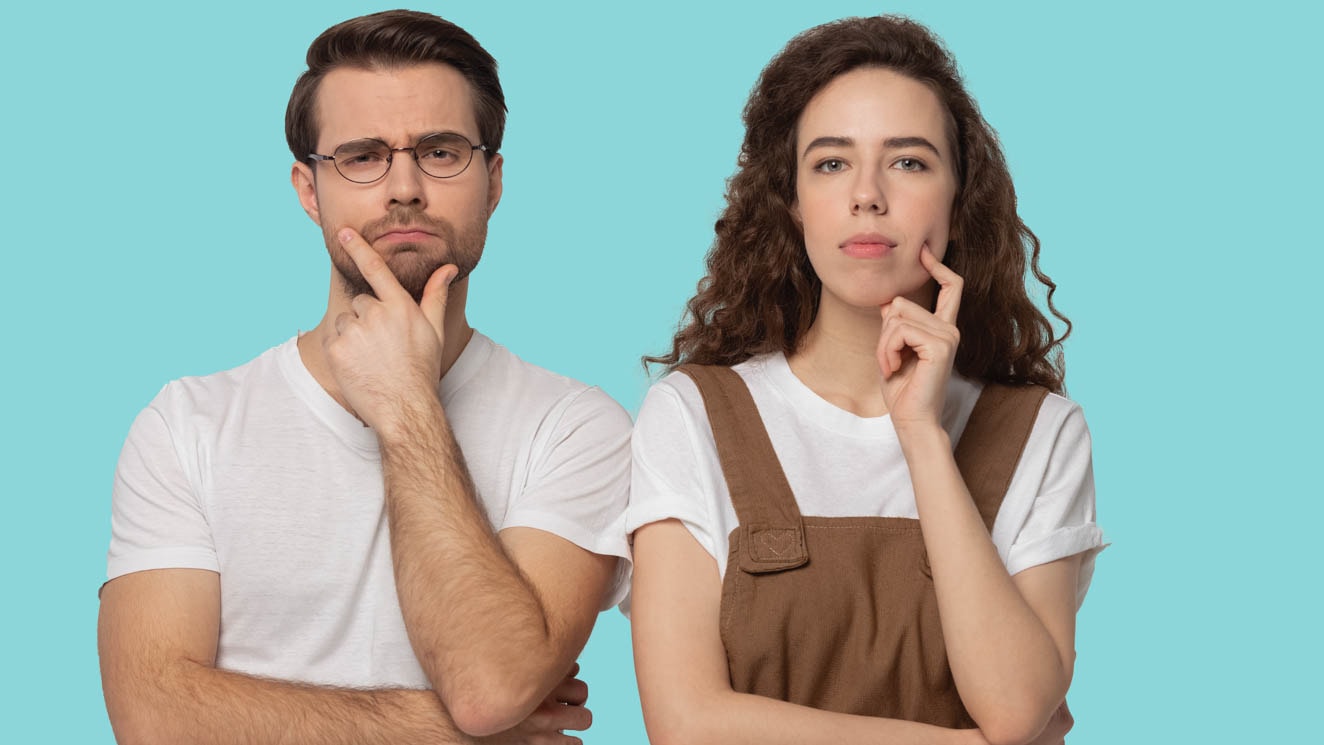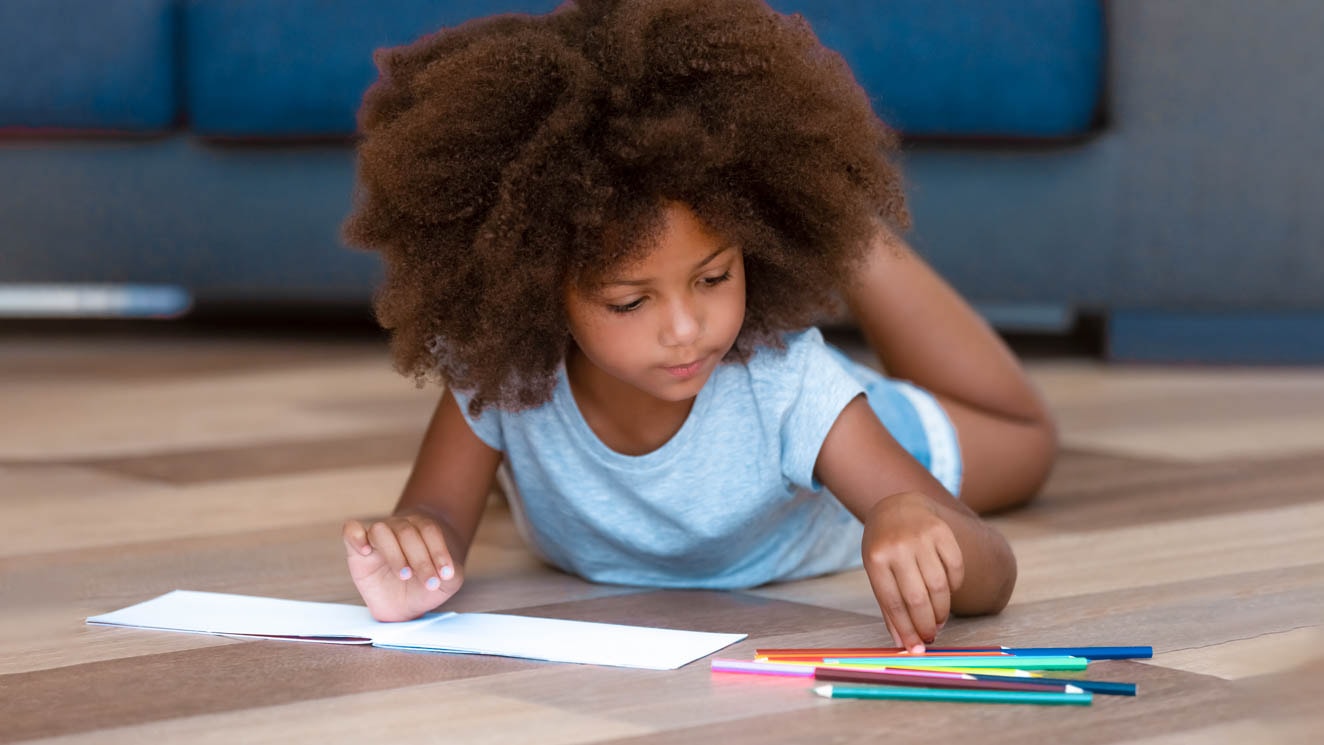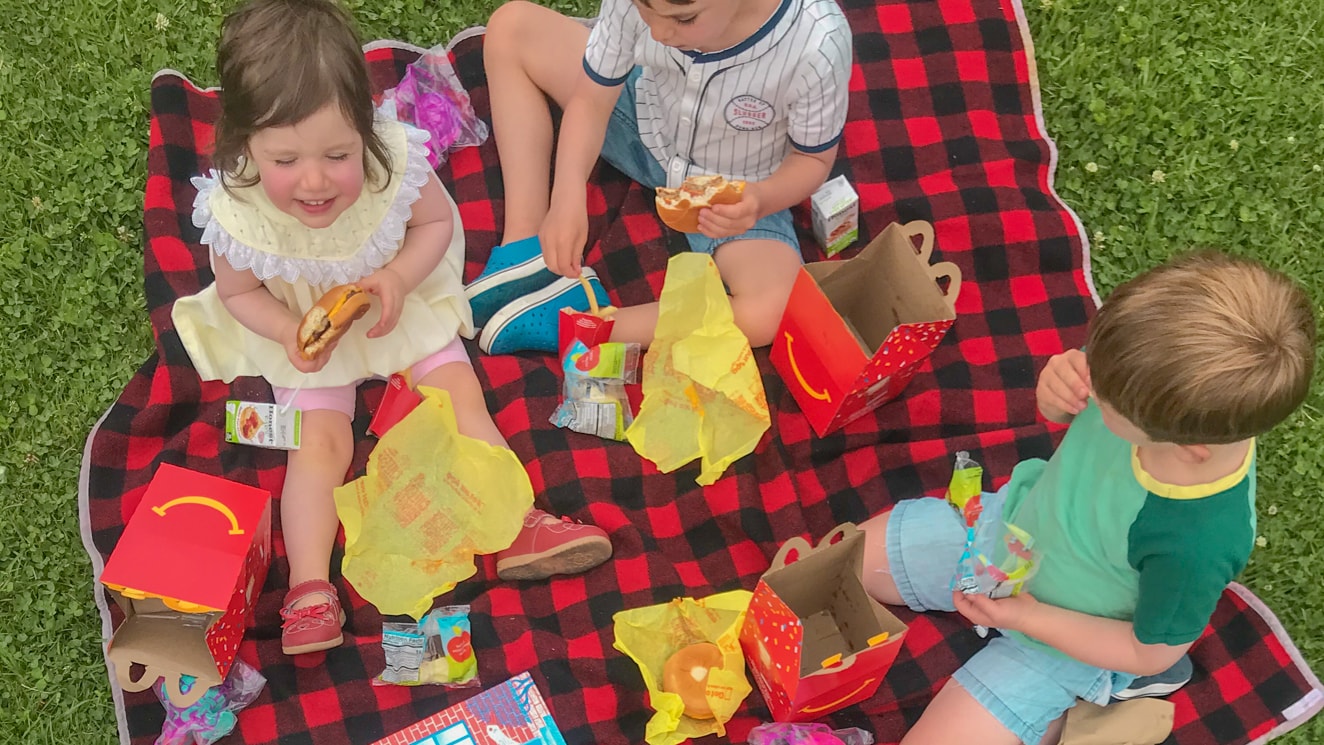

The afternoon before we officially became a “quarantine pod” with two other families, I sobbed so hard at the kitchen counter my six year old brought me her lovey. “Is this really safe?” I wailed to my husband, wracked with fear, even as I wanted to move forward. “What if we’re being irresponsible? What if we get someone sick — or they get us sick? Our lives are in their hands! And their lives are in ours! How insane is that?!” I suddenly feared that every time I felt the slightest hint of a sore throat or cough, I’d be sent into a full-blown panic attack, convinced I was going to not only kill my husband and daughter, but other people, too.
For the first several months of the pandemic, my tiny family of three was exceedingly careful. One trip to the grocery store per week; one or two nights of takeout (or what we now call “pickup”). My husband performed those tasks with a face shield and a mask on. We had some socially distanced playdates, but monitored the kids closely and stayed what felt like a million feet away from each other. I wore a mask everywhere. We refused to ride the elevator with others in our building. We never shared food. We washed our hands raw.
And yet, with no end in sight to the pandemic, I was going insane. We all were. I’m parent to an only child, and she was lonely and struggling and I felt like my marriage needed its pressure valve released. When close family friends approached us about forming a pod with them and another family — what would essentially be an extension of the closed family unit — we said we’d consider it.
What followed were weeks of negotiations between us and the two other couples over Zoom to figure out the rules of our pod: Were grandparents allowed in? (No.) Housekeepers? (No.) Socially distant playdates with other kids? (Yes.) Pediatrician or dentist appointments? (Yes, but we needed to know.) What felt safe to everyone? What was out of bounds? Would we be all-in, making the pod essentially an extended epidemiological family? Or would we be the kind of pod to hang out but still keep our distance? (The former.)
Then we had to hammer out the daily details. Yes, we knew we wanted to do dinners and playdates, but the other piece of the arrangement was the all-important childcare component. We wanted to be able to pass the kids back and forth during the workweek to give us all more uninterrupted time to work. What kind of schedule would benefit all of us? How many hours of childcare would each of the grownups take on? Would it be evenly divided between all the parents or not?
The idea was to suss out any snafus ahead of time. For us, the pod would only work if everyone agreed on the terms, including a self-quarantine first. Of course, it would be useless if one family was wiping down groceries with Lysol while another was casually heading to Target three times a week without masks on. The stakes, as well all know, are enormously high, making trust absolutely paramount. Which was where my game-day panic attack came in.
That first evening, after my crying fit, we headed over to our pod family’s house for an inaugural dinner. As we stood on the front steps, all of us jittery with nerves and excitement, I joked that they should carry us over the threshold since it felt like we were, indeed, getting married. After three months of not touching other humans — or entering anyone else’s house — it felt profoundly weird to push through that particular boundary.
We walked in. We hugged. We stood smiling at each other, our bodies so close. A few of us cried a little — it felt so joyous and vulnerable and sad to be hugging friends who we’d once hugged at least once a week but hadn’t touched in months. Our daughter ran in and the kids beamed with a kind of happiness none of us had seen in months. We don’t have to stay six feet apart!! they squealed. This is the BEST. DAY. EVER! (Then they dubbed themselves The Pod Squad.)
I thought that dinner itself might be stressful — after all, until now we’d been told to avoid sharing plates, let alone food — but it quickly felt like old times. I didn’t find myself freaking out about touching their door handles or light switches or fridge door. Sure, the minute we left we’d have to don our masks again, avoid knobs and elevator buttons. But we had decided to trust them, so their house became an extension of our bubble, of our kitchen. We ate and drank happily, and even though we spent time discussing little else, it felt almost like, for once, the pandemic was elsewhere.
It turns out that for us, forming a pod family has been a profound act of trust and love and collaboration. We have had to relinquish some control in exchange for what we consider a huge gain: community, friendship, shared meals, and some relief from overwhelming childcare duties. It feels a little like marital vows: For better or for worse. In sickness and in health.
Openness has been key. There’s a lot to talk about, a lot of negotiations, a lot of is this okay with you? — but once we got into the swing of things, it turned out there was even more to talk about: life outside the pandemic, too. I’ve been delighted by the fact that we can talk about other things other than Covid — normal things (the election! books! TV!). In fact, we adapted so quickly that when my family went for a few days without seeing the pod, I realized how truly insurmountable it all felt to go it alone.
But mostly our new pod has given us what we really need right now: company and strength for the long haul. This situation is absolutely unsustainable without a support system in place, without friends and laughter and people to lean on and other kids for your kids. Who knows how long ours will hold us up, but for now, it is doing the job better than I could have imagined.







